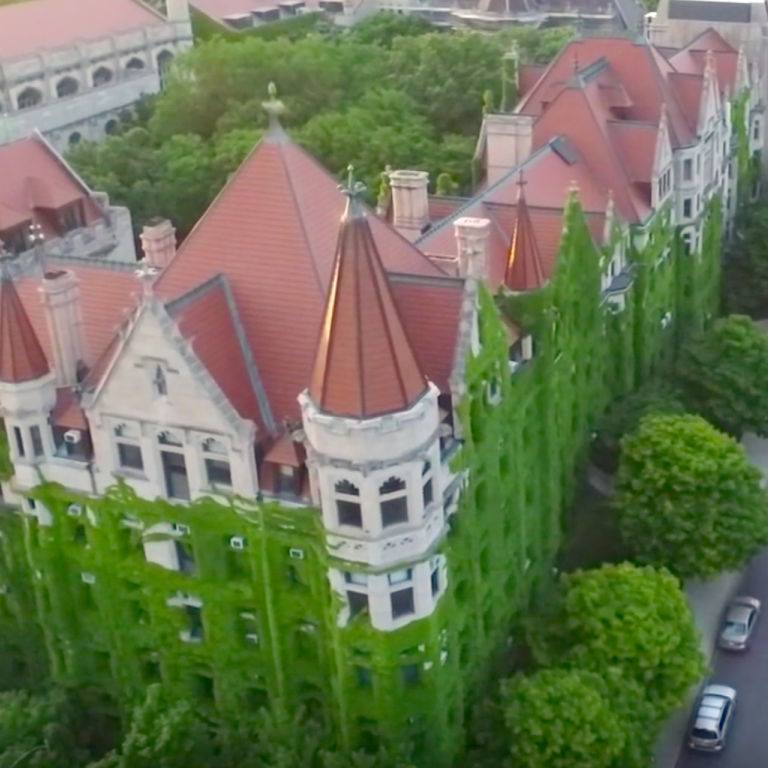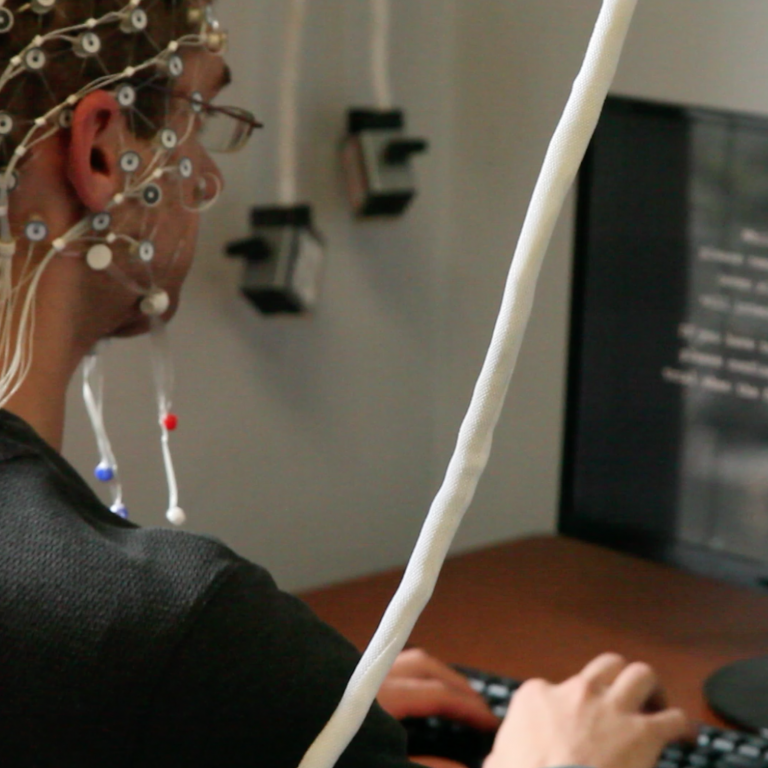Depending on my mood, I usually either twitch with excitement or cringe when asked about my research. I’ve tried out various answers to these casual queries, but my favorite is: “I study what (practical) wisdomis and how we can get it.” This response has the drawback of sounding hopelessly naïve or pompous (hence the cringing), but it has the virtue of being clear enough to invite interesting questions (hence the twitching). My favorite: “How do you research wisdom? Do you do experiments?” Having thought a lot about questions of methodology, I have an answer ready: “I think we need both philosophy and psychology to give a good account of the nature and development of wisdom. Philosophy to help us decide which notion of wisdom is worth aspiring to, and psychology to tell us more about how wisdom manifests itself in real people and how it can be developed by them.” Though this is usually enough to turn the conversation elsewhere, it brings up a further question that has been central to my research: how can empirical psychology and philosophy work together to tell us what we want to know about wisdom?
To answer this question, it helps to see why we need both philosophy and empirical psychology to give a good account of wisdom. One reason is that many different lines of empirical research seem to potentially bear on wisdom. Should we be paying attention to, for instance, the research on the heuristics and biases in human decision-making, on dual-processing models of cognition (which ones?), on people’s folk theories of wisdom, or what? What do the findings of the research tell us about wisdom? What we need is a way to figure out which of the findings about how people actually tend to decide, think or act can tell us something about the idealized, valuable state of excellence that is wisdom.
Psychologists such as Paul Baltes, Susan Bluck, Judith Glück, and Ursula Staudinger (among many others) have developed detailed models of wisdom (Baltes & Staudinger, 2000; Baltes et al., 1995; Bluck & Glück, 2004; Bluck & Glück, 2005). Can’t we just get our answers from those? Perhaps we can, but only after undertaking philosophical discussion and argument aimed at determining whether those models are truly normative – whether they are ideals that are actually worth aspiring to. While the models of wisdom used in the studies are generally developed based upon folk ideas about wisdom or based upon the psychologists’ ideas about wisdom (with some reference to historical sources), what we really need is a way to tell what wisdom really is as opposed to what people think it is. (I’m leaving aside philosophical concerns about relativism or pluralism here, so they don’t distract from the main point: as long as you’re not a nihilist about wisdom, you’re going to have to admit that accounts of wisdom can do a better or worse job of identifying what wisdom really is.) We need to be able to determine which of the accounts, if any, point us to genuine wisdom as opposed to mere pseudo-wisdom (Tiberius & Swartwood, 2011).
In my work, I develop an account of wisdom, which I call the expert skill model that is supposed to do just that. The basic idea is that we can learn about the nature and development of wisdom by modeling it on expert decision-making skills in areas that are relevantly similar to wisdom. If the analogy I draw is a good one, we can use the copious research on the nature and development of these expert decision-making skills to draw conclusions about the nature and development of wisdom.
Making good on the analogy requires philosophical argument, which I articulate and defend in more detail elsewhere (Swartwood, 2013a; Swartwood, 2013b, chap. 2). The basic idea is that wisdom is relevantly similar to expert decision-making skill in areas like firefighting, because both involve an understanding of how to conduct oneself in a domain that requires complex decisions that are challenging to perform. That comparison may sound strange: isn’t firefighting drastically different from the task of making wise decisions? The strangeness should be relieved when we remember that the analogy is to a type of skill, of which expert firefighting skill is one instance. What’s more, the claim is not that wisdom is identical to these other skills, but that it shares the features that are relevant for determining how wisdom is (or would be) manifested in real people and how it can be developed.
Here’s a rough explanation of the relevant similarities. Wise people understand how to conduct themselves, all-things-considered: they know how to make decisions that appropriately express their commitments to justice, self-respect, honesty, and the like, even in situations that would befuddle the rest of us. The difficulty of these choices is due in part to their complexity. The factors that make a particular course of action good all-things-considered are many, varied, and interact in complex ways. But another difficulty is maintaining the appropriate motivation and affect that enables one to do what should be done. Even when you figure out that telling the hurtful truth is the thing to do, it can be challenging to do it and for the right reasons. Making good firefighting decisions, for instance, requires overcoming similar obstacles. Whereas novices more often make decisions that put themselves or others at risk or fail to extinguish a threatening blaze, expert firefighters understand when to get out of a burning room, where to focus their hoses, and how to channel their fear and concern for people and property successfully. In this way, expert firefighters are just like expert decision-makers in a variety of other fields: they understand what they need to do to succeed at their task and how to regulate their feelings and motivations so that they actually do it. Wisdom is thus like these expert decision-making skills in that it is an understanding of how to conduct oneself in an area involving complex choices that require a sustained coordination of motivation and affect to carry out. (Of course, we should be concerned to see if there are relevant differences that will undermine this analogy. I address what I take to be the most important of these objections in my article “Wisdom as an Expert Skill” (Swartwood, 2013a, sec. 5).)
This kind of analogy between a virtue-like wisdom and more ordinary, better understood skills is far from new – the most prominent contemporary versions trace their roots to Plato and Aristotle (Annas, 2004; Annas, 2011; Stichter, 2007; Stichter, 2011). My goal has been to develop the analogy in such a way that it isolates the most specific set of skills that have been the subject of up-to-date empirical research. One line of research that the expert skill model points us to is the work on Naturalized Decision-Making. This research, conducted over the past two or three decades by psychologist Gary Klein and others, uses structured interviews, observation and other methods to see how real experts in fields like firefighting, military tactics, and other fields make decisions and develop their expertise (Kahneman & Klein, 2009; Klein, 2009; Salas & Klein, 2001; Zimmerman, 2006). Among the findings:
• Intuition is a big part of expert decision-making skill, though experts also use metacognition and mental simulation to deliberate about what to do.
• Expert decision-makers are skilled at identifying how to further improve their own performance.
• Expert decision-making skill is acquired through, among other things, extensive deliberate (motivated, self-guided, and reflective) practice that provides clear and immediate feedback on the quality of decisions, along with critical reflection on one’s decision-making processes.
If the argument for the expert skill model is a good one, we can infer analogous things about the nature and development of wisdom. My current project, begun in my doctoral dissertation, is to continue pulling out these implications. I suspect that the expert skill model can shed new light on questions that have occupied moral philosophers, such as the question of whether a wise person’s excellent decisions are made possible by her possession of a comprehensive, consciously accessible conception of a good life. And since some of the psychological models of wisdom (such as the one developed by Paul Baltes) model wisdom on expertise, the analogy to expertise may be a point of contact that can help us determine whether psychologists and philosophers have been interested in the same questions about wisdom and whether their methods and answers are compatible.
But I’m sure there are other important questions about wisdom that will require different analogies. Which sets me wondering again: which analogies are helpful for which questions? What questions do we need answered most, and what research could bear on them? Perhaps by working together philosophers and psychologists can make headway on these questions.
References
Annas, J. (2004). Being virtuous and doing the right thing. In Proceedings and Addresses of the American Philosophical Association, 78:61–75.
Annas, J. (2011). Intelligent Virtue. Oxford, UK: Oxford University Press.
Baltes, P.B. & Staudinger, U.M. (2000). Wisdom: A metaheuristic (pragmatic) to orchestrate mind and virtue toward excellence. American Psychologist, 55 (1): 122.
Baltes, P.B., Staudinger, U.M., Maercker, A., & Smith, J. (1995). People nominated as wise: A comparative study of wisdom-related knowledge. Psychology and Aging, 10 (2): 155.
Bluck, S., & Glück, J. (2005). People’s implicit theories of wisdom. A handbook of wisdom. Psychological Perspectives: 84.
Bluck, S. & Glück, J. (2004). Making things better and learning a lesson: Experiencing wisdom across the lifespan. Journal of Personality, 72 (3): 543–572.
Kahneman, D., & Klein, G. (2009). Conditions for intuitive expertise: A failure to disagree. American Psychologist, 64 (6): 515–526.
Klein, G. (2009). Streetlights and Shadows: Searching for the Keys to Adaptive Decision Making. Cambridge, MA: MIT Press.
Salas, E., & Klein, G. (2001). Expertise and naturalistic decision making: An overview. In Linking Expertise and Naturalistic Decision Making, 3–8. Mahwah, NJ: Lawrence Erlbaum Associates Publishers.
Stichter, M. (2007). Ethical expertise: The skill model of virtue. Ethical Theory and Moral Practice, 10 (2): 183–194.
Stichter, M. (2011). Virtues, skills, and right action. Ethical Theory and Moral Practice, 1–14.
Swartwood, J. D. (2013a). Wisdom as an expert skill. Ethical Theory and Moral Practice, 16 (3): 511–528. doi:10.1007/s10677-012-9367-2.
Swartwood, J. D. (2013b). Cultivating Practical Wisdom. Ph.D. Dissertation, Minneapolis, MN: University of Minnesota. http://conservancy.umn.edu/bitstream/154543/1/Swartwood_umn_0130E_13707.pdf.
Tiberius, V., & Swartwood, J.D. (2011). Wisdom revisited: A case study in normative theorizing. Philosophical Explorations, 14 (3): 277–295.
Zimmerman, B. J. (2006). Development and adaptation of expertise: The role of self-regulatory processes and beliefs. In The Cambridge Handbook of Expertise and Expert Performance, 705–722. New York, NY: Cambridge University Press.





